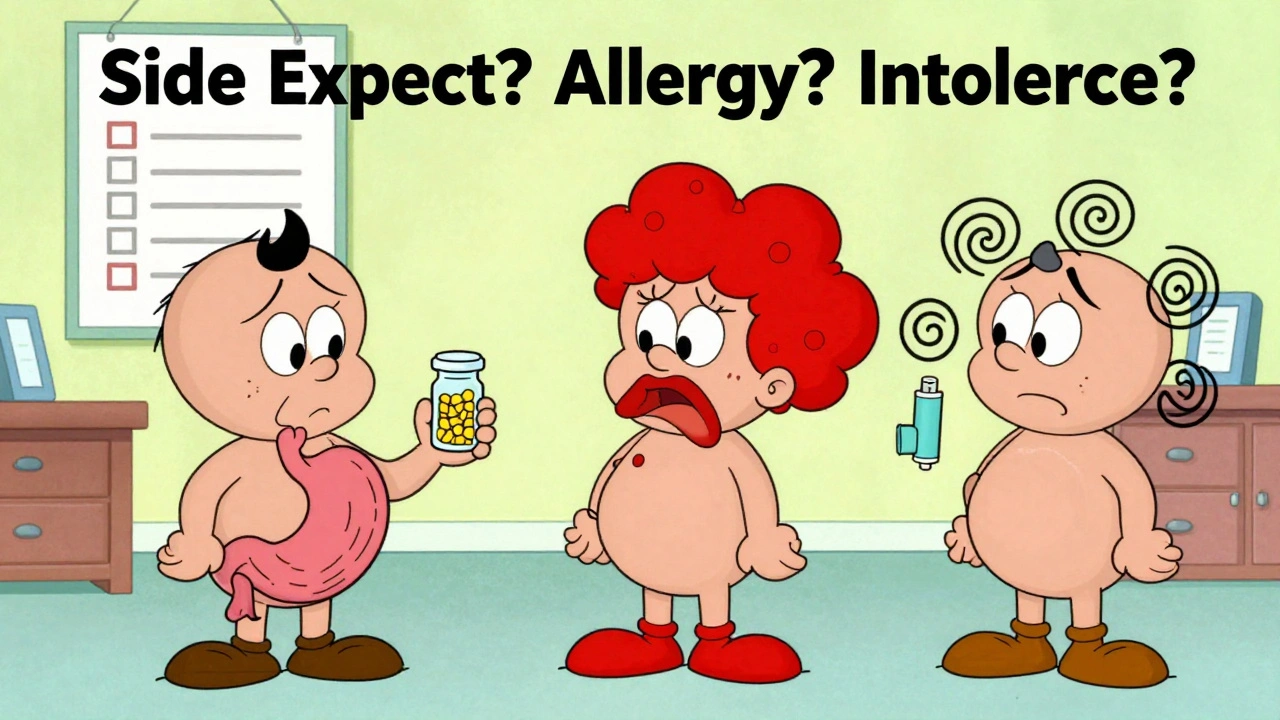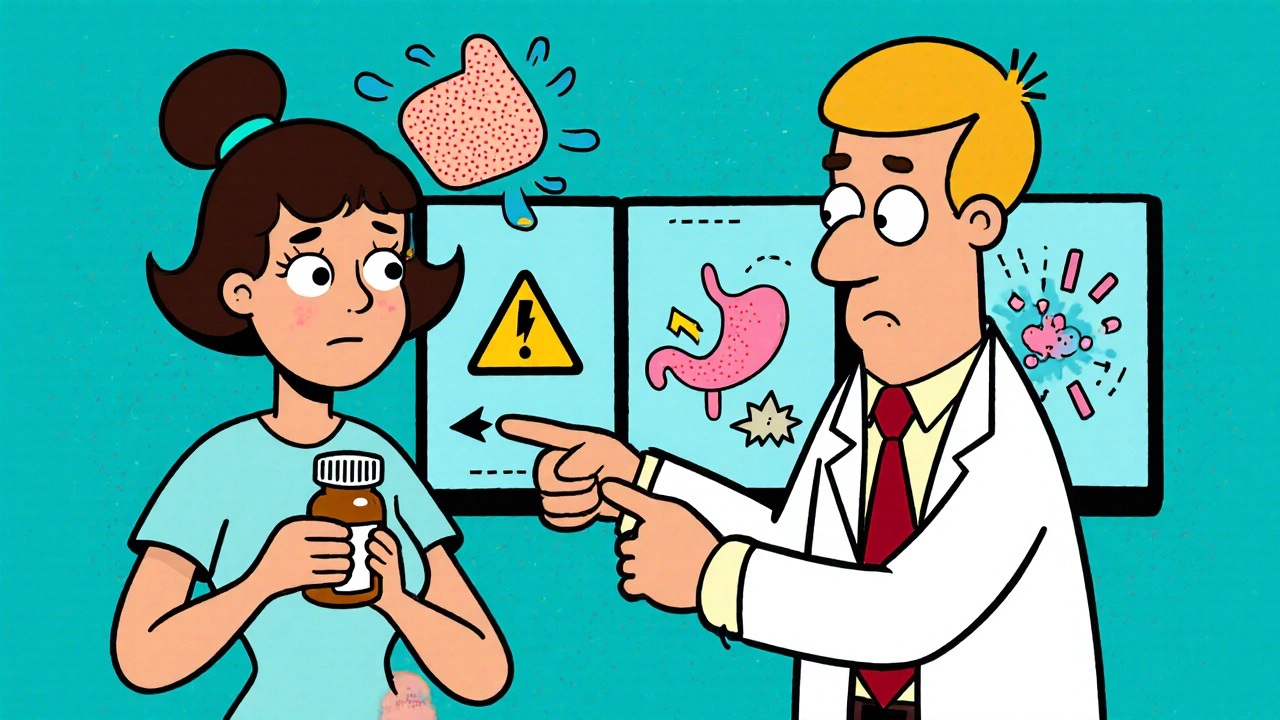Side Effects – What to Watch For and How to Manage Them
When you start a new pill, cream, or injection, the first thing on most people’s minds is whether it will work. But the other side of the coin is the side effects that can pop up. Knowing what to expect and how to deal with them can keep you safe and confident about your treatment.
Common Types of Side Effects
Side effects come in many flavors. Some feel like a mild headache or a little stomach upset – those are usually short‑term and fade on their own. Others, like skin rashes or joint pain, can linger and need a check‑in with your doctor. Here are the three groups you’ll hear most often:
- Gastro‑intestinal: nausea, diarrhea, constipation, or a bloated feeling. Often linked to antibiotics, NSAIDs, and iron supplements.
- Neurological: dizziness, headache, or trouble sleeping. Common with antihistamines, certain blood pressure meds, and some antidepressants.
- Dermatologic: itching, rash, or dry skin. Watch for these when using steroids, acne medicines, or some antibiotics.
If a side effect feels severe – like breathing trouble, sudden swelling, or intense chest pain – call emergency services right away. Those are rare but need fast attention.
Tips for Monitoring and Reporting
Keeping a simple log makes a big difference. Write down the date, the dose you took, and any new feeling you notice. A small notebook or a phone note works fine. Over a week, patterns start to appear and you’ll know if a symptom is linked to the med.
When you talk to your pharmacist or doctor, be clear: mention the exact symptom, when it started, and if it gets better or worse after each dose. This helps them decide whether to adjust the dose, switch drugs, or add a supportive treatment.
Don’t stop a prescription on your own just because you feel odd. Stopping suddenly can cause rebound effects or make the condition worse. Instead, ask a professional how to taper safely if needed.
Some side effects are listed on the package insert, but real‑world experience can differ. Online forums, patient reviews, and your own health network can give clues, but always verify with a medical source before making changes.
Finally, remember that not every new feeling is a medication problem. Stress, diet changes, or a cold can mimic side effects. That’s why a detailed log and a quick chat with a healthcare provider help separate the two.
Bottom line: side effects are a normal part of many treatments, but they don’t have to ruin your health journey. Spot them early, log them honestly, and keep the conversation open with your care team. You’ll stay in control and get the most out of your medication.
Side Effects vs Allergic Reactions vs Intolerance: How to Tell the Difference
Learn how to tell the difference between side effects, allergic reactions, and drug intolerance. Avoid unnecessary medication avoidance and get the right treatment with accurate diagnosis.
Drug Allergies vs. Side Effects: How to Tell Them Apart and Stay Safe
Learn how to tell the difference between a true drug allergy and a common side effect-why it matters for your health, what to do if you're mislabeled, and how to get tested safely.
Prucalopride and Alcohol: Risks, Interactions & Safety Guide
Learn how prucalopride interacts with alcohol, the risks, side effects, and practical safety tips for managing chronic constipation while drinking.
Suprax (Cefixime) Guide: Uses, Dosage, Side Effects & Buying Tips
A straight‑forward guide to Suprax (cefexime): what it treats, proper dosing, possible side effects, safety tips and where to obtain it safely in Canada.
Eulexin: What You Need to Know About Flutamide for Prostate Cancer
Learn how Eulexin (flutamide) works in prostate cancer treatment, its known side effects, proper use, and tips for managing risks. Get key facts and practical advice.




